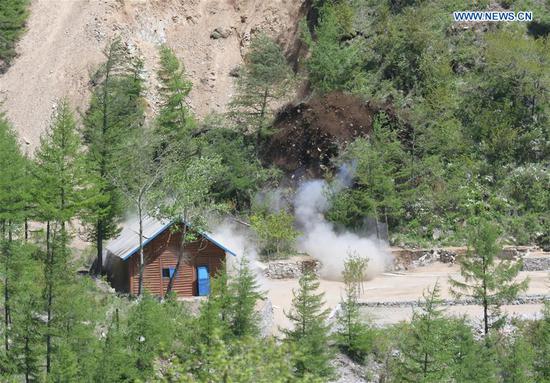Developed local economies boost zone benefits
The Chinese government is re-shifting the focus of free trade zones (FTZs) back to coastal areas, which experts said can maximize the effects and influence of FTZs by taking advantage of the regions' developed economies.
The government will further deepen the opening-up and reform plan for FTZs in South China's Guangdong Province, North China's Tianjin and East China's Fujian Province, the State Council, the country's cabinet, announced on Thursday.
According to several separate statements published on gov.cn, the central government website, the authorities will further develop the negative list mechanism for foreign investors, further ease market access and increase the opening-up scale in the services sector.
Tang Wenhong, head of the Department of Foreign Investment Administration under the Ministry of Commerce, said during a State Council press conference on Thursday that the government is now drafting two foreign investment negative lists, one for foreign investment into FTZs and the other for foreign investment in regions outside FTZs.
The FTZs will be granted more decision-making power in reforms, and a convenient, international business environment will be set up in the zones, according to the statements.
Dong Dengxin, director of the Finance and Securities Institute at the Wuhan University of Science and Technology, said that the central government is using the FTZs as "experimental areas" for domestic policies, particularly in terms of opening-up.
"If the policies are successful in the FTZs, they will be replicated outside," he told the Global Times on Thursday.
In April, the government also announced a plan to set up an FTZ in South China's Hainan Province. China has set up 11 FTZs so far.
Focus on coastal areas
The government has tried to take a balanced approach to FTZs in China by setting up some of them in inland cities, Dong noted.
In April 2017, the government opened seven FTZs, several of which were in inland cities in Central China's Hubei and Henan provinces.
"Of course those FTZs have some beneficial effects for the local economy, but their development scale and influence is much weaker as a result of their relative geographical isolation," Dong told the Global Times on Thursday. "For example, we have heard a lot about the Wuhan FTZ, but there has been little action."
Zhou Yu, director of the Research Center of International Finance at the Shanghai Academy of Social Sciences, said coastal areas usually have more developed economies and financial systems, and also have more business related to overseas trade, providing "ripe conditions" for FTZ development.
Different roles
The statements also listed some detailed plans for expanding trade-related business in the Guangdong, Tianjin and Fujian FTZs.
For example, the government will speed up the construction of whole car importing ports in Fuzhou and Xiamen, while the Tianjin FTZ is expected to strengthen cooperation with international ship management firms.
The government wants to give different trade roles to different FTZs, Zhou said. "Geographical advantages could provide a good reference for this. For example, the Guangdong FTZ can focus on trade business with Hong Kong and Hainan can develop tourism," Zhou noted.


















































